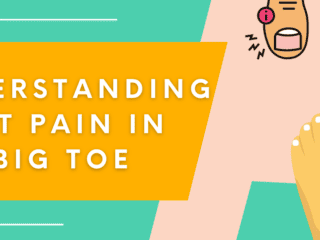DrugGenius carried out a study analyzing Google Search Trends of essential vitamins over 2022, in order to identify vitamin deficiencies across America.
Key findings of the study:
- 44 states in America searched for vitamin D supplements the most. There are a few reasons why this happened. One reason is that vitamin D is thought to have immune-boosting properties, and some people may have been looking for ways to support their immune system during the pandemic. In addition, vitamin D deficiency has been linked to an increased risk of respiratory infections, and some people may have been looking for ways to reduce their risk of respiratory illness.
- Another reason for the increase in searches for vitamin D supplements during the pandemic may be due to the fact that many people were spending more time indoors and were not getting as much sunlight as they normally would, which can lead to a deficiency in vitamin D. Vitamin D is produced in the skin in response to sunlight, and it is an important source of this nutrient for many people.
- 5 states in America (California, Florida, Hawaii, New Jersey, New York) searched for Vitamin C the most. It is no surprise that searches in California, Florida and Hawaii bucked the national trend and search more for vitamin C than vitamin D given how much more sunshine they receive.
- Vitamin A was most searched in North Dakota (21% of their searches), and the least in Alaska (12% of their searches). According to data from the Centers for Disease Control and Prevention (CDC), heart disease is a leading cause of death in North Dakota, as it is in many other states. There is some evidence to suggest that vitamin A may be beneficial for heart health. Vitamin A is important for the maintenance of healthy skin, mucous membranes, and immune system function, and it may also play a role in reducing inflammation in the body. Inflammation has been linked to an increased risk of heart disease, and reducing inflammation may help to protect against heart disease. This may explain why North Dakotans searched the most for vitamin A supplements.
On the other hand, searches for vitamin E supplements were the lowest in Alaska, which also correlates to levels of heart disease in the state. Alaskans’ heart health ranks as one of the best across America according to a study by Value Penguin based on analysis of Centers for Disease Control and Prevention and U.S. Census Bureau data.
- Vitamin B was most searched in Wyoming (11% of their searches). Wyoming has one of the highest rates of depression when compared to all other states. There is some evidence to suggest that vitamin B deficiency may be associated with an increased risk of developing depression. Vitamin B is a group of water-soluble vitamins that play important roles in the body, including in the function of the nervous system. A deficiency in vitamin B can lead to a range of symptoms, including fatigue, weakness, and mood changes.
- Vitamin C was most searched in Hawaii (33% of their searches) – Hawaii has some of the highest rates of periodontal disease. Vitamin C is a powerful antioxidant that can help to protect the gums and other tissues in the body from damage caused by free radicals. It is also necessary for the production of collagen, a protein that is important for the structure and strength of the gums. Some studies have suggested that vitamin C may help to reduce the risk of gum disease by strengthening the gums and decreasing inflammation.
- Vitamin D was most searched in Delaware (37% of their searches), and the least in Hawaii (24% of their searches). Again it makes sense that Hawaii residents are least likely in the US to search for Vitamin D considering their sunshine rates.
- Overall in America of the 6 vitamins that were researched, the most popular was Vitamin D (40%). This was followed by Vitamin C (29%), Vitamin A (13%), Vitamin B (7%), Vitamin E (7%) and Vitamin K (4%).

Vitamin A Top Searches:
- North Dakota (21%)
- Idaho (20%)
- West Virginia (19%)
- South Dakota (19%)
- Mississippi (19%)

Vitamin A Lowest Searches:
- Alaska (12%)
- New York (14%)
- New Jersey (15%)
- Massachusetts (15%)
- Virginia (15%)
Vitamin B Top Searches:
- Wyoming (11%)
- Montana (11%)
- Vermont (8%)
- North Dakota (8%)
- Maine (8%)

Vitamin B Lowest Searches:
- Rhode Island (4%)
- Delaware (5%)
- West Virginia (5%)
- Georgia (6%)
- Texas (6%)
Vitamin C Top Searches:
- Hawaii (33%)
- California (32%)
- New York (31%)
- New Jersey (30%)
- Nevada (30%)

Vitamin C Lowest Searches:
- Vermont (19%)
- Alaska (20%)
- Wyoming (20%)
- West Virginia (22%)
- North Dakota (22%)
Vitamin D Top Searches:
- Delaware (37%)
- West Virginia (35%)
- Kentucky (35%)
- Maine (35%)
- Mississippi (34%)

Vitamin D Lowest Searches:
- Hawaii (24%)
- Florida (28%)
- California (28%)
- Utah (29%)
- South Dakota (29%)
Vitamin E Top Searches:
- South Dakota (12%)
- North Dakota (10%)
- Montana (10%)
- Alaska (10%)
- Nebraska (10%)

Vitamin E Lowest Searches:
- Rhode Island (7%)
- Massachusetts (7%)
- Wisconsin (7%)
- Minnesota (7%)
- Tennessee (8%)
Vitamin K Top Searches:
- Alaska (22%)
- Oregon (13%)
- Vermont (13%)
- Massachusetts (12%)
- Washington (12%)

Vitamin K Lowest Searches:
- Mississippi (5%)
- Montana (6%)
- Delaware (6%)
- Kansas (6%)
- Idaho (6%)
Further Observations
- Vitamin K’s third highest search volumes happened in the state of Vermont, where heart disease is the biggest killer within the state. Some studies have suggested that vitamin K may help to reduce the risk of heart disease by decreasing the calcification of arteries, which can lead to the development of plaque and increase the risk of heart attack and stroke.
- A large portion of vitamin k searches revolve around the relationship between vitamin k2 and d3.
- Vitamin A’s second and third-highest search volumes took place in Idaho and West Virginia respectively. Vitamin A deficiency can cause anemia, which is a condition in which the body does not have enough red blood cells to carry oxygen to the body’s tissues. Anemia can cause fatigue and weakness, which can increase the risk of heart problems.
About Vitamin Deficiencies:
Vitamin A
Vitamin A deficiency occurs when the body does not have enough of the vitamin – it is a nutrient that is essential for good health in a number of bodily functions. This includes maintaining good eyesight, healthy skin, a well functioning immune system, and healthy mucous membranes.
People who are deficient in vitamin A are likely to experience dry and itchy eyes, are unable to see properly in a dark room, and have dry and scaly skin. Moreover, people who are vitamin A deficient are often sick as they may have a weakened immune system, making their body more susceptible to infections. In some extreme examples, a lack of vitamin A can lead to serious health problems such as blindness.
People who live in developing countries tend to suffer more from vitamin A deficiency than those in developed countries. This is mostly due to an unbalanced diet, which lacks nutrition and sufficient quantities of vitamin A. However, vitamin A deficiency can also occur in developed countries as a result of a diet that is lacking in fruits, vegetables, and other sources of vitamin A.
Doctors who detect vitamin A deficiency in patients usually advise on increasing the intake of foods rich in vitamin A, such as liver, dairy products, and certain types of fruits and vegetables, or by taking supplements. In severe cases, vitamin A injections may be necessary.
Vitamin B
Vitamin B is actually a group of essential nutrients that play important roles in maintaining good health. These include thiamine, riboflavin, niacin, pantothenic acid, pyridoxine, biotin, folate, and cobalamin.
People who lack sufficient vitamin B in their bodies generally suffer from fatigue, weakness, irritability, and difficulty concentrating. Severe examples of the deficiency can lead to more serious health problems, such as anemia, nerve damage, and cardiovascular disease.
What causes vitamin B deficiency? A number of factors can cause the condition – these include an unbalanced diet, and certain medications. Some people may also have certain health conditions that interfere with the absorption of B vitamins. Alcohol abuse, for example, can also interfere with the body’s ability to absorb and use B vitamins.
How to treat vitamin B deficiency? This may involve changing one’s diet or taking vitamin B supplements. Sometimes, and in more severe cases, vitamin B injections may be administered.
Vitamin C
Vitamin C deficiency is also known as scurvy, famous throughout history as something that affected pirates! It is vital for a number of bodily functions, including the synthesis of collagen, the maintenance of healthy skin and blood vessels, and the absorption of iron.
People who are deficient in vitamin C often experience fatigue, muscle weakness, joint and muscle aches, and a feeling of general malaise. More severe symptoms may include bruising easily, poor wound healing, dry and splitting hair, and gingivitis (inflammation of the gums). In the most severe cases, scurvy can lead to the formation of painful, bumpy skin infections and the loss of teeth.
People who are most susceptible to vitamin C deficiency are those who do not consume enough fruits and vegetables, although it can also happen in people who have conditions that interfere with the absorption of vitamin C or who are taking certain medications.
Doctors and dieticians usually advise increasing the intake of vitamin C through diet or supplements for those who are deficient in the vitamin. In extreme cases, vitamin C injections may be necessary.
Vitamin D
Vitamin D plays a vital role for the body, including the absorption of calcium and phosphorus, which are necessary for strong bones, and the immune system function.
Those who lack sufficient vitamin D may experience fatigue, muscle weakness, and bone pain and tenderness. Vitamin D deficiency can also lead to more serious health problems, such as osteomalacia (a condition that causes weak bones) and osteoporosis (a condition that causes fragile bones).
People who live in areas with poor sunlight often have vitamin D deficiency, however, it can also be caused by a diet that is lacking in vitamin D-rich foods or by certain health conditions that interfere with the absorption of vitamin D.
Treatment of vitamin D deficiency typically involves increasing the intake of vitamin D through diet or supplements, and increasing exposure to sunlight.
Vitamin E
Vitamin E is a group of fat-soluble compounds that play fundamental roles in the body. This includes acting as an antioxidant to protect cells from damage caused by free radicals.
Vitamin E deficiency symptoms can include muscle weakness, difficulty walking, and abnormal eye movements. It can also lead to more serious health problems, such as nerve damage and problems with the immune system.
People who are more susceptible to vitamin E deficiency include those who have certain health conditions that interfere with the absorption of fat and fat-soluble vitamins, such as Crohn’s disease or cystic fibrosis. It can also occur in people who are receiving long-term parenteral nutrition without adequate vitamin E supplementation.
Treatment is relatively straightforward, and includes either eating a more balanced diet or taking supplements.
Vitamin K
The body uses vitamin K for a number of bodily functions, including the synthesis of proteins that are necessary for blood clotting and the maintenance of healthy bones.
Symptoms of vitamin K deficiency may include easy bruising, bleeding gums, and prolonged bleeding after cuts or injuries. In rare cases, it can lead to life-threatening bleeding.
Contributors to vitamin K deficiency include a poor diet, certain medications that interfere with the absorption of vitamin K, and certain health conditions that affect the absorption of fat and fat-soluble vitamins. It can also occur in newborns who do not receive sufficient vitamin K at birth.
Disclaimer: this article does not constitute or replace medical advice. If you have an emergency or a serious medical question, please contact a medical professional or call 911 immediately. To see our full medical disclaimer, visit our Terms of Use page.
Vitamin Deficiencies
What Vitamin Deficiency Causes Muscle Cramps?
What Vitamin Deficiency Causes You To Feel Cold?
What Vitamin Deficiency Causes You To Crave Salt?
What Vitamin Deficiency Causes Stomach Bloating?
What Vitamin Deficiency Causes Burning Mouth Syndrome?







